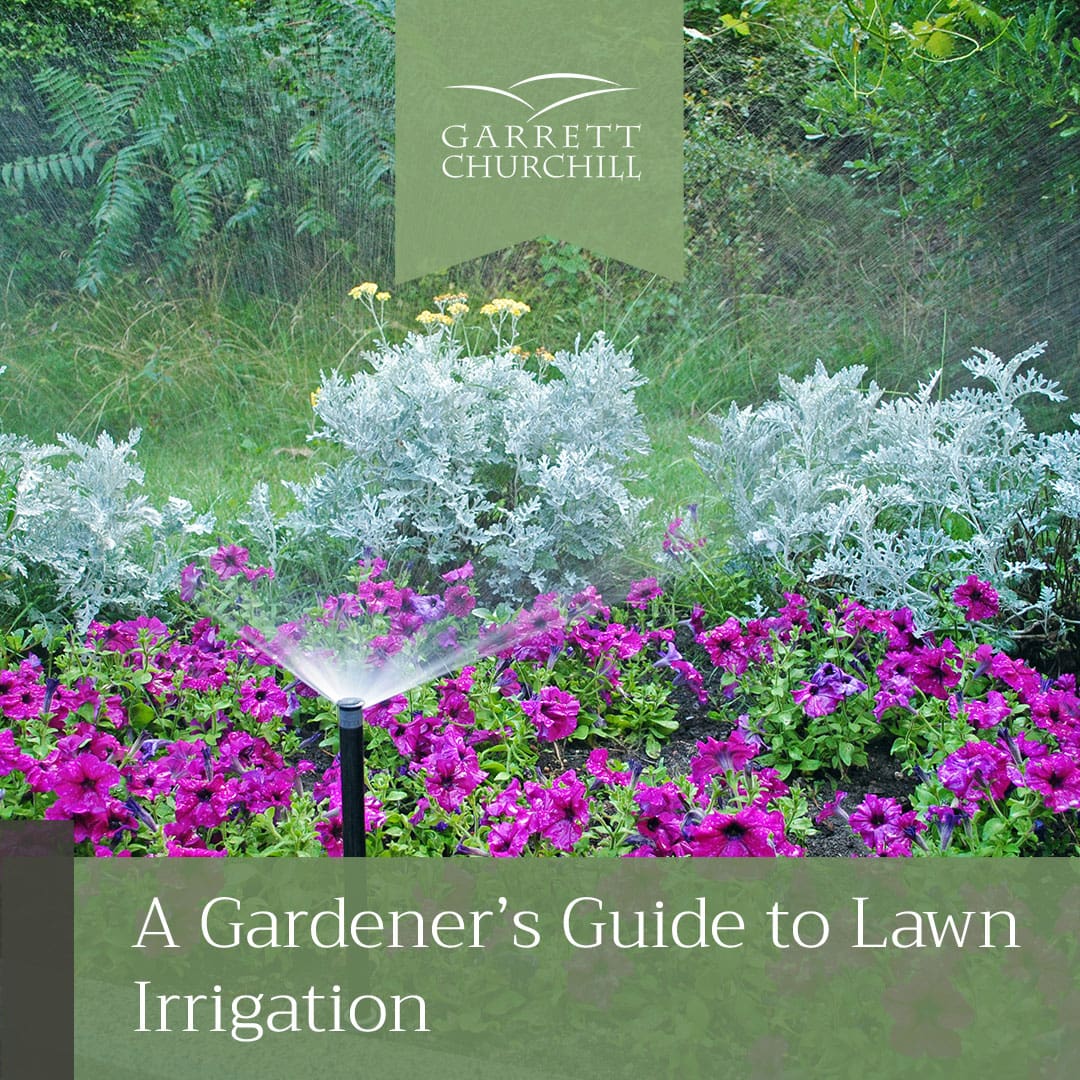A Gardener’s Guide to Lawn Irrigation
Even the best gardener can inadvertently overwater or underwater areas of their lawn. Timing your sprinkler system with fluctuating precipitation levels can seem tricky, but rest assured, there are proactive steps you can take to pinpoint the right lawn irrigation schedule for your yard.
Spotting the telltale signs of improper irrigation begins with enriching your landscaping knowledge. To ensure your lawn remains healthy and lush, you’ll need to know how much water your grass type needs and when to water it.
Read on for our helpful gardener’s guide to successful lawn irrigation.
Know Your Grass Type
When you know your grass type, you will be able to determine how often you should water your lawn.
Common grass types include:
Cool-Season Grasses
Cool-season grasses need very little water. Common cool-season grasses include: Bentgrass, Bluegrass, Fescues, and Ryegrass.
These grasses flourish in cool northern climates, but often don’t survive in hot southern locations.
A few key facts about cool-season grasses:
- They grow in spring and fall.
- They need one inch of water per week, and benefit from light, frequent waterings.
- With sufficient hydration, they can flourish in the summer months.
Warm-Season Grasses
Warm-season grasses flourish in warmer southern climates. Popular types of this warm-season grasses include Bahiagrass, Bermudagrass, Buffalograss, Carpetgrass, Centipedegrass, St. Augustinegrass, and Zoysia grass.
A few key facts about warm-season grasses:
- They grow in summer.
- They are dormant in fall and winter.
- They are drought tolerant.
- They still require regular watering.
Basic Lawn Irrigation Advice
Knowing how often and how much to water your lawn can be challenging, but there are a few pro tips to help you make an informed decision. You can be confident that when proper irrigation is combined with balanced soil and nutrients, your lawn will look its best.
- Water When the Grass Needs It
Most lawns need water once or twice a week, so watch the weather. When it rains for several days, water les; when the weather has been hot and dry for days, water more. On average, your lawn should get 1-1.5 inches of water per week. - Water in the Morning
Watering in the early morning will give your grass time to absorb the water. The best time to water is from 6 a.m. -10 a.m. Selecting this window will ensure that your grass is hydrated during the heat of the afternoon. - Don’t Overwater
Be mindful of soggy soil. According to Lawn Starter, “the goal is to moisten the soil deeply; 4 inches is good, 6 inches is better.”
Types of Sprinkler Systems
There are a variety of sprinkler systems to choose from to maintain a healthy green lawn. Some sprinklers are manually controlled, and others run on automatic timers.
Take some time to do your research to find the best fit for you and your lawn.
Fixed Sprinkler
Fixed sprinklers are an economical way to water your lawn. The sprinkler comes as a metal or plastic vessel with small holes that attaches to the end of your hose, and the pressure of the water forces its way out of the holes and waters your lawn. Fixed sprinklers can be relocated as needed to hydrate different areas of your property.
Gear Drive Sprinkle
Gear drive sprinklers are versatile, heavy-duty sprinklers often used on golf courses and expansive lawns, which require a great deal of water. These sprinklers are mechanically operable, so you can adjust the distance and force of the spray.
Hose-End Spray Nozzles
Hose nozzles are readily available, affordable, easy to install. As such, they remain top sellers at most home improvement stores. They are versatile, ranging from materials of plastic to brass, with a controllable handle that can regulate water levels. You can adjust the pattern of the nozzle’s spray by twisting the nozzle or controlling the nozzle through a dial.
Impact Sprinkler
With an impact sprinkler, water pressure propels impact sprinklers to rotate and spray. While this design is available in plastic and brass, we recommend brass for its durability despite the incremental expense. Most models rely on a ground spike or a tripod design to achieve the optimal height for rotation.
In-Ground Water Sprinkler
An in-ground water sprinkler system is more involved than the options mentioned above. To install this system, you’ll need to dig trenches for your sprinkler lines and install a series of interconnected PVC pipes.
In-ground water sprinklers use different sprinkler heads placed at fixed locations throughout the yard to provide the best coverage. You can also use various sprinkler head options depending on the dimensions of your yard. Some spray 360 degrees, and some pop up when watering and down when finished.
Oscillating Sprinkler
Oscillating sprinklers are available in aluminum tubing, plastic, and rubber making them a great low-cost option. The spray tube automatically rocks back and forth while water is distributed, gradually saturating the lawn. This sprinkler is a great choice for those with small, rectangular yards.
Smart Irrigation Controller
Sprinkler controllers are now a 21st-century gardener’s dream with smart irrigation controllers for your phone. Fixed timers are no longer needed as smart controllers use Wi-Fi or GSM cellular connectivity to gain information on plant data and weather forecasts.
Sign Up For a Soil Analysis
If you’re concerned about the health or appearance of your lawn, we offer on-site consultations and soil analyses to maximize your soil health and functionality. Contact us today to learn more about our creative landscaping solutions with curb appeal.
